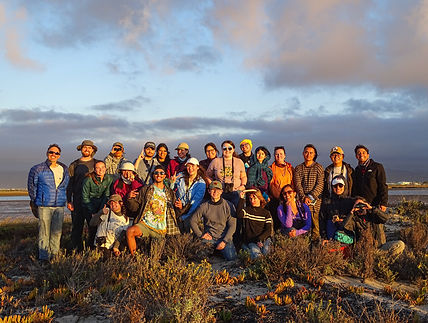
Expanding and Diversifying Careers in Sustainable Food Systems along the US-Mexico Border

OUR MISSION
Better Food Futures (BFF) NextGen at SDSU is a collaborative initiative dedicated to restoring our food systems. We empower a diverse new generation of professionals to tackle global climate pressures through the power of regenerative agriculture and sustainable development. By bridging the gap between ecology and food production, we are building a more resilient future for our planet.


OUR CAUSE
Global pressures are pushing our food systems to a breaking point, causing environmental decay and unstable livelihoods. We harness regenerative agriculture to not just sustain the land, but actively renew it. From sustainable oyster farming at "El Pedregal" to protecting migratory bird habitats in San Quintín, we focus on circular economies and environmental health. By restoring what has been lost, we create a resilient foundation for the next generation of leaders to protect our shared natural resources.

OUR LATEST NEWS

Exploring Baja California
In collaboration with CICESE, we brought together a diverse group of students and researchers from across the Americas to explore the rich biodiversity of the California Floristic Province in Baja California.
Learn more
%20(2)_edited.jpg)
Community Celebration Day
Hosted by Garden 31, The SDSU IV Edible Garden and NextGen teams joined forces with local volunteers to transform the Spring Valley garden, one tree at a time.
Learn more
.jpeg)
Speaker Event - Dr. Stacy Philpot
An insightful presentation on the social and landscape drivers of biodiversity in urban agroecosystems.
Learn more
GET IN TOUCH
Address

Biology Department,
5500 Campanile Dr, San Diego, CA 92182
Contact
(619) 594-3080